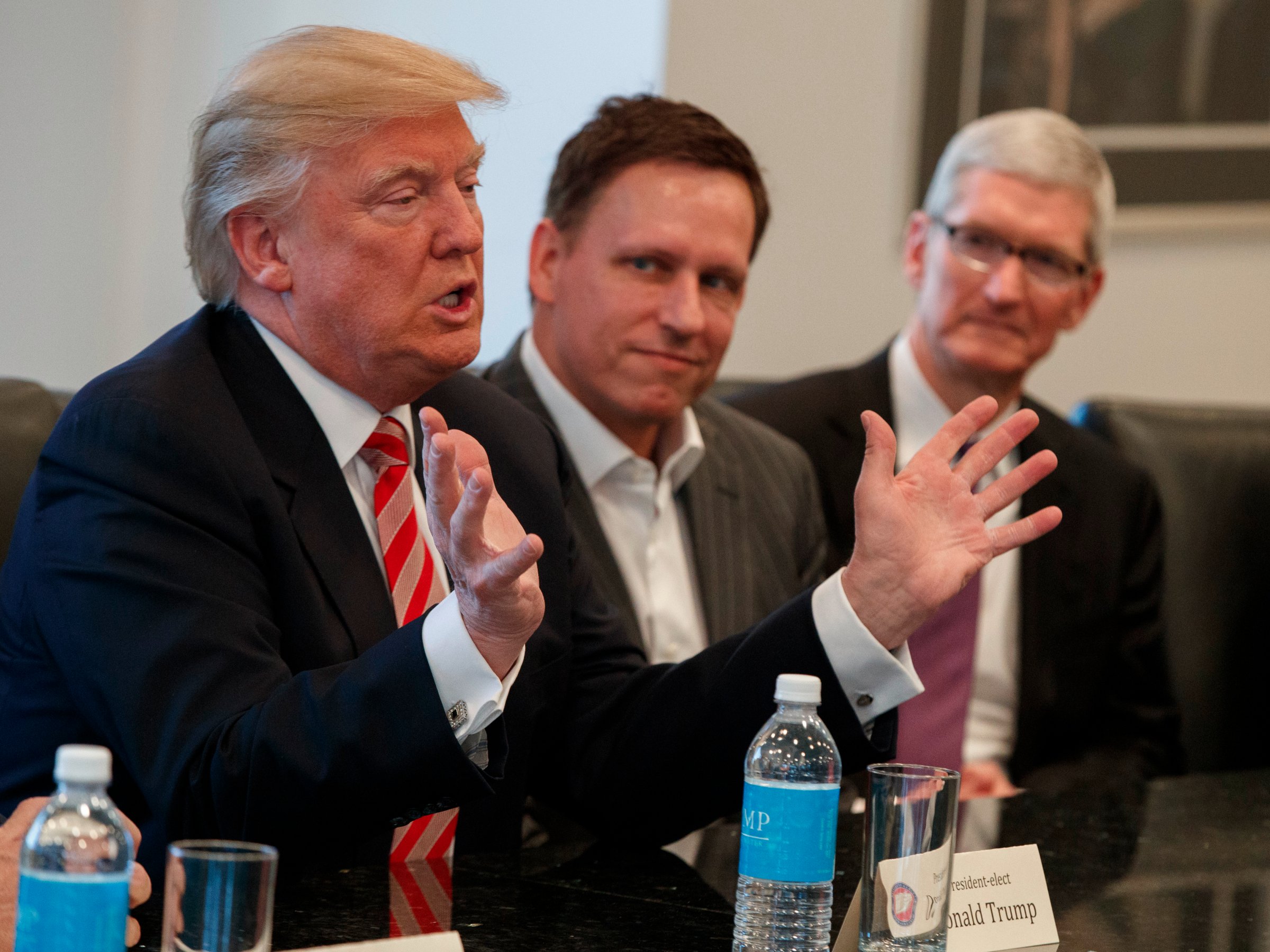 AP
AP
One of the most exciting things for Wall Street about President-elect Donald Trump is his promise to cut corporate taxes.
A number of top equity strategists, all bullish on stocks in 2017, told Barron’s that the biggest risk of a correction is if there is little progress on tax reform by mid-year.
“Republicans should focus on implementing this tax cut in a significant, speedy and simple manner if they want it to be successful,” said David Bianco, the chief US equity strategist at Deutsche Bank, in a recent note.
US companies have a tax rate of about 39%, the highest among developed countries. They’re taxed on worldwide income, but only if the profits are returned home. A lower tax rate could encourage companies to repatriate some of the profits they’ve kept abroad to avoid taxes. In theory, that could encourage investment and hiring.
However, the tax windfall is more likely to immediately benefit shareholders much more than it does the broader economy, according to a global strategy note from Pavilion published Wednesday.
“Tax breaks to encourage firms to repatriate their foreign cash holdings have tended to overwhelmingly benefit shareholders, largely through share buybacks,” they wrote. “Conversely, these deals have had little impact on long-term investment or employment. Going forward, we question the efficacy of another tax break and think take-up could in fact be low.”
The firm looked into the last time that tax reform triggered a big repatriation of funds to the US. That was in 2004, when the American Jobs Creation Act (AJCA) was passed. US companies retrieved $362 billion, or 45% of their foreign cash holdings, Pavilion noted. Of that, $312 billion was eligible to be taxed at a 5.25% rate instead of the 35% rate of the time. What they found was that this break did not increase investment into the economy.
Companies that benefitted the most immediately hired more workers. But the pace was inconsistent, Pavilion said, adding that some of these new workers may have been accountants and lawyers needed to implement the repatriation. To be fair, the number of employees they had right before the recession was higher compared to the trough when the AJCA was passed.  Pavilion
Pavilion
At the same time, they steadily increased the level of dividend payments to shareholders, and hiked share buybacks to boost stock prices.
Analysts at Credit Suisse were slightly more optimistic on the impact of corporate tax reform on economic growth, although they think it is less likely to be implemented in 2017 than personal income tax reform.
“Given the complex tax code, and its disparate effects across sectors, the suggested final version of reform is contentious,” said James Sweeney in a note on Tuesday.
One aspect of the proposed reform is a border-adjusted tax on imported goods to encourage domestic production. Although this could reduce incentives for companies to base their activities offshore, a rise in the dollar could lower import costs and offset this tax burden.
Additionally, border adjustment could cost Trump some congressional votes from Republicans opposed to the idea, Sweeney said.
“If it gets done in 2017, whether with border adjustment or not, we think the reduction in marginal tax rates will be on net a positive for the US economy, and we would consider this to be some additional stimulus, on top of what happens with personal income taxes,” Sweeney said.














